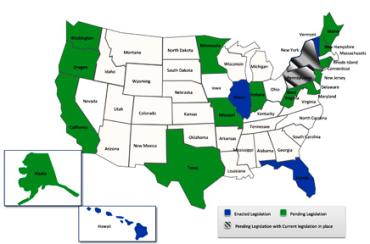Mandatory Overtime
The Issue:
Nurses and other healthcare workers are being required to work past the end of their regularly scheduled shifts, which may be as long as twelve hours. This unexpected overtime may result from an emergency but often happens simply because the employer is filling a hole in the schedule by forcing employees to work overtime rather than hiring more staff. Long hours—especially longer-than-expected hours—are not only damaging to the health and well-being of those working them but lead to medical errors and unsafe care.
- One study found Critical Care Nurses working 12.5 consecutive hours or longer had nearly double the risk of making an error.
[1] Scott, Linda D. et al. "Effect of Critical Care Nurses' Work Hours on Vigilance and Safety." American Journal of Critical Care, January 2006, Volume 15, No. 1. - Another study of staff nurses found the likelihood of making an error was three times higher when working 12.5 or more hours.
[2] Rogers, Ann E. et al. "The Working Hours of Hospital Staff Nurses and Patient Safety." Health Affairs, July/August 2004, Volume 23, No. 4. Thirty-nine percent of all shifts worked in the second study exceeded 12.5 hours. Long hours also significantly increased risk of suffering a needle stick injury. - The Institute of Medicine recommends that nurses work no more than 12 hours in a 24 hour period and no more than 60 hours in a seven day period,
[3] Institute of Medicine. "Keeping Patients Safe: Transforming the Work Environment of Nurses", 2004. but more than half of hospital nurses in a recent study typically reported working more than 12 hours per day and 17 percent reported being forced to work overtime.[4] Trinkoff, Alison et al. "How long and how much are nurses now working?", Am J Nurs, vol. 106, no. 4, 2006. - In a 2008 survey of 1500 Milwaukee nurses, 42% reported being forced to work overtime at least once a month. Ninety-six percent of respondents said the quality of patient care suffered when nurses were forced to work overtime and 43percent reported they were personally aware of errors that occurred as a result of nurse fatigue.
[5] Wisconsin Federation of Nurses and Health Professionals Survey, 2008.
Legislation:
Sixteen states currently regulate or restrict mandatory overtime for those in the nursing field: Alaska, Connecticut, Illinois, Maryland, Minnesota, New Jersey, New Hampshire, New York, Oregon, Pennsylvania, Rhode Island, Texas, Washington, West Virginia, California, and Missouri. The New Jersey law is the toughest, setting a maximum 40-hour workweek in hospitals and nursing homes for all health professionals who deliver care.
States Banning Mandatory Overtime
AFT Position:
AFT has been on record since 1990 calling for a ban on mandatory overtime. See our 1990 and 1998 convention resolutions.
Other Recommendations:
On-Call should be treated as work time. Completely relieved breaks should be the norm.

